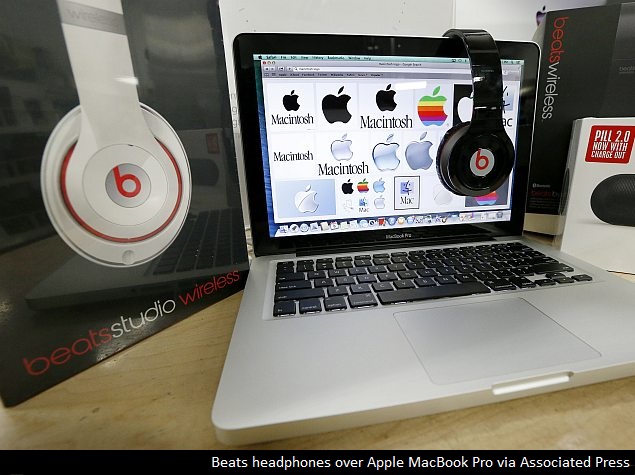Former Executive Sues for Stake in Beats Electronics, Object of Apple's Desire

David Hyman, the founder of Mog, a subscription music service that Beats bought in 2012 and turned into its own app, Beats Music, filed a $20 million suit against Beats this week, saying that he was cheated out of stock in the company because he was fired unfairly, before his shares could vest.
Mog was founded in 2005 as a network of music blogs. Four years later, it became a subscription service along the lines of Rhapsody or Spotify, selling streaming access to millions of songs for up to $10 a month. When Beats Electronics, then best known for its line of headphones, bought Mog's music service for about $14 million, in a deal announced in July 2012, it hired Hyman to continue as chief executive. (Mog's blog advertising network was sold separately for about $10 million to Townsquare Media Group.)
(Also see: Apple Reportedly Eyes Beats in What Would Be Its Biggest Acquisition Ever)
According to the suit, which was filed at Los Angeles Superior Court on Wednesday, and first reported by Courthouse News, Hyman was offered at least 2.5 percent of the "currently outstanding equity interests" in Beats' music service, which was then known under the provisional name Daisy. Those shares were scheduled to vest gradually after one year, but Hyman did not last that long. According to the suit, Hyman had the discretion to fire most employees under him at the new service but found himself dismissed in late 2012 after he tried to fire a marketing executive whom some of the higher-ups at Beats were "fond" of.
A Beats spokeswoman declined to comment. Neither Beats nor Apple has spoken publicly about their pending deal, although their negotiations have been confirmed by people briefed on the talks, who spoke anonymously because of the private nature of the discussions.
Although Apple appears willing to spend more than $3 billion for Beats, it is unclear how much of that price is attributable to the Beats Music subscription service, a separately owned affiliate of Beats Electronics, the headphone company.
While Beats Electronics is said to have more than $1 billion annual revenue, the music service, which opened in January, is still small; music executives estimate its current subscriber roll at around 200,000. Spotify, by comparison, is estimated to have around 10 million subscribers, and in its last investment round, late last year, it was reportedly valued at more than $4 billion.
© 2014 New York Times News Service
For details of the latest launches and news from Samsung, Xiaomi, Realme, OnePlus, Oppo and other companies at the Mobile World Congress in Barcelona, visit our MWC 2026 hub.
Related Stories
- Samsung Galaxy Unpacked 2026
- iPhone 17 Pro Max
- ChatGPT
- iOS 26
- Laptop Under 50000
- Smartwatch Under 10000
- Apple Vision Pro
- Oneplus 12
- OnePlus Nord CE 3 Lite 5G
- iPhone 13
- Xiaomi 14 Pro
- Oppo Find N3
- Tecno Spark Go (2023)
- Realme V30
- Best Phones Under 25000
- Samsung Galaxy S24 Series
- Cryptocurrency
- iQoo 12
- Samsung Galaxy S24 Ultra
- Giottus
- Samsung Galaxy Z Flip 5
- Apple 'Scary Fast'
- Housefull 5
- GoPro Hero 12 Black Review
- Invincible Season 2
- JioGlass
- HD Ready TV
- Latest Mobile Phones
- Compare Phones
- Apple iPhone 17e
- AI+ Pulse 2
- Motorola Razr Fold
- Honor Magic V6
- Leica Leitzphone
- Samsung Galaxy S26+
- Samsung Galaxy S26 Ultra
- Samsung Galaxy S26
- MacBook Pro 16-Inch (M5 Max, 2026)
- MacBook Pro 16-Inch (M5 Pro, 2026)
- Apple iPad Air 13-Inch (2026) Wi-Fi + Cellular
- Apple iPad Air 13-Inch (2026) Wi-Fi
- Huawei Watch GT Runner 2
- Amazfit Active 3 Premium
- Xiaomi QLED TV X Pro 75
- Haier H5E Series
- Asus ROG Ally
- Nintendo Switch Lite
- Haier 1.6 Ton 5 Star Inverter Split AC (HSU19G-MZAID5BN-INV)
- Haier 1.6 Ton 5 Star Inverter Split AC (HSU19G-MZAIM5BN-INV)

















